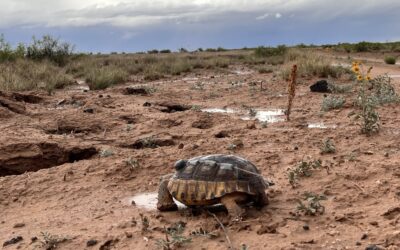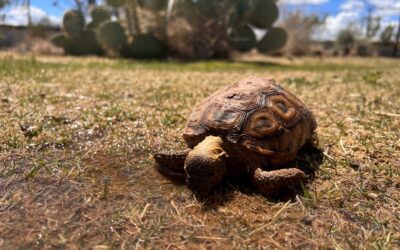OUR STORY
OUR STORY
Every year tens of thousands of species and functional ecosystems, fine-tuned by time and place, disappear.
If these trends continue, the world will become a dismal place indeed, with silent springs and little left to excite the senses except the weeds. Without doubt, the extinction crisis looms as one of humanity’s most pressing problems.
In response to this crisis, Ted Turner, his family, and Mike Phillips established the Turner Endangered Species Fund (TESF) and Turner Biodiversity Divisions (TBD) in June 1997. TESF focuses on species protected under federal and state endangered species laws, whereas TBD considers species that are at slightly less risk. These companion efforts are dedicated to saving biological diversity by ensuring the persistence of imperiled species and their habitats with an emphasis on private land.
We work closely with our partner organizations, Turner Enterprises, Inc. and the Turner Foundation, and invite collaboration with state and federal agencies, universities, and other private organizations.
Whether managing an extant population or restoring an extirpated one, our goal is population persistence with little or no human intervention. We believe that persistent populations of native species are indicative of a healthy landscape and a high degree of ecosystem integrity.
The problems involved in private stewardship are complex and effective solutions require broad-based sociopolitical, biological, geographical, and fiscal considerations. Though our projects may be controversial, slow to succeed or fraught with uncertainty, we intend to stand as a real solution to the extinction crisis.
NEWSROOM
Quenched Bolson tortoise fills up on rain water.
A tortoise quenches its thirst by filling up on rainwater from a small puddle near its burrow in what is possibly the first drink it has had this year. Aside from the water contained in green forage plants, puddles formed after a rain event are the only sources of...
Inside their overwinter burrows, Bolson tortoises orient their faces toward the end of their tight-fitting burrow to increase the humidity in the microenvironment in front of their faces.
Irrigating the forage plants that grow in the headstart pen not only jump-starts new growth on winter-dormant grasses – and thus important morsels of fresh food for small tortoises - but it also provides the tortoises their first drink in nearly six months following...
Three day-old Mexican wolf pups.
These three-day old pups, born at Turner’s Mexican wolf captive breeding and pre-release facility at the Ladder Ranch in New Mexico, are part of the Turner Natural Resources Program’s longstanding effort to recover this critically imperiled species to the southwestern...
Every year tens of thousands of species and functional ecosystems, fine-tuned by time and place, disappear.
If these trends continue, the world will become a dismal place indeed, with silent springs and little left to excite the senses except the weeds. Without doubt, the extinction crisis looms as one of humanity’s most pressing problems.
In response to this crisis, Ted Turner, his family, and Mike Phillips established the Turner Endangered Species Fund (TESF) and Turner Biodiversity Divisions (TBD) in June 1997. TESF focuses on species protected under federal and state endangered species laws, whereas TBD considers species that are at slightly less risk. These companion efforts are dedicated to saving biological diversity by ensuring the persistence of imperiled species and their habitats with an emphasis on private land.
We work closely with our partner organizations, Turner Enterprises, Inc. and the Turner Foundation, and invite collaboration with state and federal agencies, universities, and other private organizations.
Whether managing an extant population or restoring an extirpated one, our goal is population persistence with little or no human intervention. We believe that persistent populations of native species are indicative of a healthy landscape and a high degree of ecosystem integrity.
The problems involved in private stewardship are complex and effective solutions require broad-based sociopolitical, biological, geographical, and fiscal considerations. Though our projects may be controversial, slow to succeed or fraught with uncertainty, we intend to stand as a real solution to the extinction crisis.



